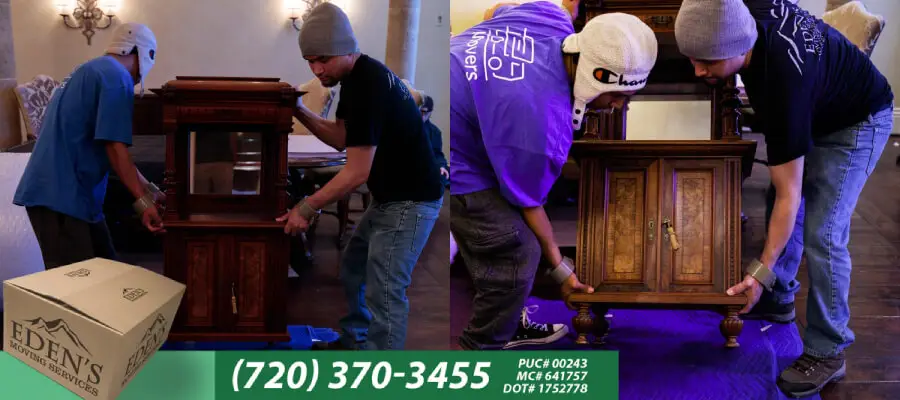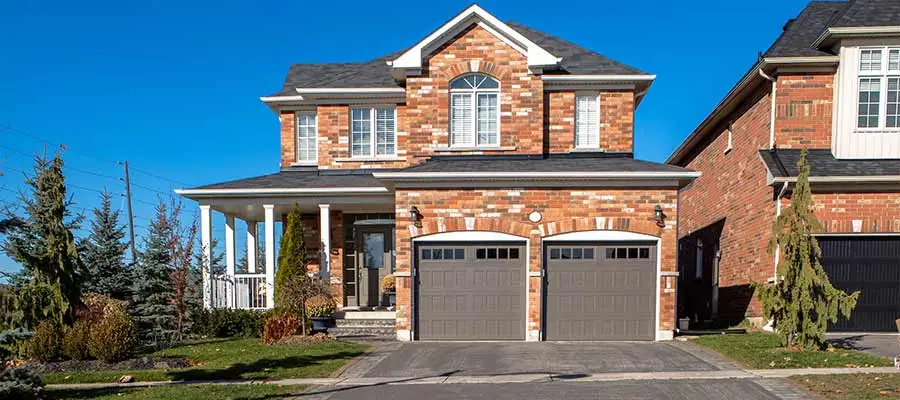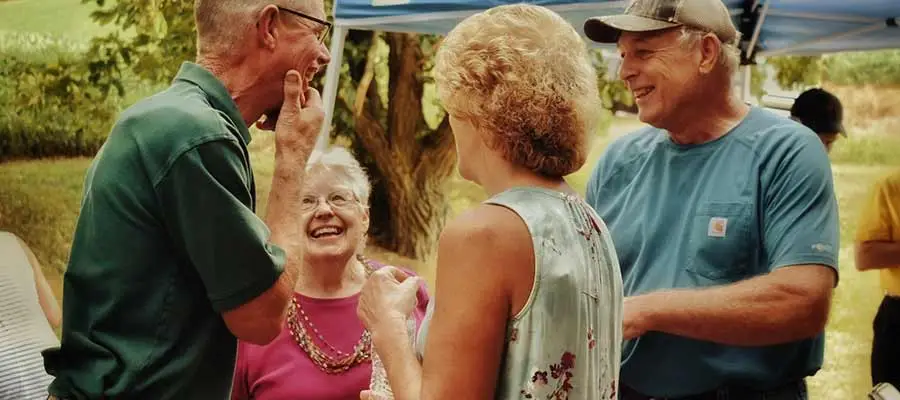Relocating can be an exciting adventure, yet it also entails numerous logistics that may seem overwhelming—especially when moving with elderly family members. Whether it’s downsizing to a more manageable home, moving closer to loved ones, or embracing the relaxed pace of life in a retirement community, moving with seniors demands unique considerations. At Eden’s Moving, we’re here to guide you through each step of this critical transition.

Understanding Their Needs
To make the moving experience less stressful for your elderly loved ones, understanding their needs is paramount. Consider their daily routines, health requirements, and the familiarity they may have with their current neighborhood. Talk to them about potential new locations, explaining the benefits and drawbacks of each. If they’re moving to a new state, such as moving to Texas or moving to Florida from Colorado, it’s crucial to discuss the changes in climate and culture.

Get Professional Help
When moving with seniors, it can be immensely beneficial to enlist the services of professionals who specialize in residential moving services. An experienced team can handle the physical aspects of the move, reducing the potential strain on your elderly loved ones. This allows them to focus on adjusting to their new surroundings. For example, if you are in the process of planning a long distance moving to California or Louisiana, expert Denver movers can ensure a smooth, hassle-free transition.

Take Extra Care with Belongings
Elderly family members often have cherished possessions that hold sentimental value. Whether it’s antique furniture, family photographs, or an old vinyl record collection, ensure these items are treated with utmost care during the move.

Accessibility and Convenience
When choosing a new home for your elderly loved ones, consider the property’s accessibility. Single-level homes or places with an elevator can be better suited for seniors, making moving to Washington or moving to Oregon, where such houses are prevalent, an attractive choice.
Additionally, the proximity of the new home to amenities such as grocery stores, healthcare facilities, and social venues can greatly impact the quality of life for your elderly family members.

Ensure Emotional Support
Relocation can be an emotional rollercoaster, especially for seniors leaving a home full of memories. Being there for your loved ones, discussing their concerns, and ensuring they’re involved in the decision-making process can alleviate their anxieties.

Plan the New Living Space
Whether you are thinking of moving to Georgia or moving to Kentucky, visualizing the new living space can make the move more tangible and less intimidating for your elderly family members.
As you embark on the journey of moving with elderly loved ones, keep these pointers in mind. Relocating seniors is not just about the physical move—it’s about ensuring their comfort, happiness, and a sense of belonging in their new home. Trust the experts at Eden’s Moving to help you navigate this significant life transition with ease and compassion.
Familiarizing With New Environments
One of the biggest challenges for seniors when moving is getting accustomed to their new surroundings. This can be incredibly true when moving to North Carolina or moving to South Carolina, where the lifestyle might be drastically different from what they’re used to. To make this transition smoother, it’s recommended to research local senior centers, community groups, and activities that align with their interests. This will not only keep them engaged but also help them form new social connections.

Organizing Medical Care
Seniors often have medical needs that require regular attention. When planning the move, it’s crucial to arrange for continued care. If you’re moving to Michigan or moving to New Jersey, ensure that your loved ones’ medical records are transferred to their new healthcare providers. Additionally, make a list of local pharmacies, and if necessary, arrange for home healthcare services.
Clear Communication
Moving can be a significant change, and it’s not uncommon for seniors to feel apprehensive. That’s why maintaining clear communication is so vital. Discuss each stage of the process, from the moment you choose to use our residential moving services to the time you settle into your new place, whether that’s moving to Minnesota, moving to Ohio, or moving to New York. This can help alleviate fears and ensure they feel included every step of the way.
Consider a Senior Moving Manager
For those with complex needs or those who are moving to California, hiring a Senior Move Manager can be an excellent choice. These professionals are experienced in coordinating all aspects of a senior’s move, from downsizing and packing to setting up the new home.
In the end, the key to a successful relocation with elderly family members lies in patience, understanding, and careful planning. Every family’s situation is unique, but by considering these tips and enlisting the help of experts at Eden’s Moving, you can ensure a smooth and stress-free moving experience for your elderly loved ones. They’ve taken care of you for years; now it is your turn to take care of them in this new chapter of their lives.

Involving Seniors in the Moving Process
Sometimes, all it takes is to make your elderly loved ones feel included. Allow them to be a part of the moving process, from sorting and packing their belongings to choosing their room in the new house. If you’re moving to Texas, they could even help select a new favorite Texan restaurant! Making them feel involved can ease feelings of uncertainty and help them look forward to the new journey ahead.

The Power of Familiarity
The new house may not feel like home right away, especially for seniors leaving a long-term residence. Bring along favorite furniture pieces and personal items to decorate the new space. Whether you’re moving to Oregon or moving to Washington, surrounding seniors with familiar objects can provide comfort and help them settle in more quickly.
Emphasize the Positives
It’s natural for seniors to feel apprehensive about moving. Instead of dismissing their worries, acknowledge them and then highlight the positives. Are there better amenities in the new location? Is the new home closer to family members? If you’re moving to Georgia, for example, maybe they’re excited about the warm climate or southern hospitality.

Plan a Warm Welcome
Once you’ve navigated the logistics of the move with our long-distance moving service and arrived at the new home, take the time to celebrate. Plan a housewarming party or a family gathering to welcome your elderly loved one to their new residence, be it moving to Kentucky or moving to Louisiana. This not only helps to create new, positive memories but also provides an opportunity for them to mingle with new neighbors and community members.
Stay in Touch with Old Friends
Lastly, while making new friends is important, maintaining old friendships is equally so. Arrange for regular phone calls, video chats, or even visits with friends from the old neighborhood. This can be an ideal source of comfort and continuity in the midst of so much change.
Moving with elderly family members can indeed be a significant undertaking, but with these tips and with the professional services provided by Eden’s Moving, you can ensure a smooth relocation for your loved ones. Remember, this move marks the beginning of a new adventure, so approach it with positivity, patience, and excitement.

Frequently Asked Questions About Living with Elderly Parents
How do you prepare for an elderly parent moving in with you?
Preparing for an elderly parent moving in with you involves considering both the physical and emotional aspects of the transition. Physically, you should ensure that your home is safe and accessible, possibly investing in mobility aids or home modifications. Emotionally, it’s important to have open conversations about expectations, boundaries, and routines. It may also be beneficial to consider seeking guidance from elder care professionals or therapists.
Should you move in with elderly parents?
The decision to move in with elderly parents depends on several factors, including their current health status, your capacity to provide care, and the potential impact on your personal life and relationships. This decision requires open and honest dialogue among all family members involved. It’s a personal choice that varies from family to family.
How do you cope with living with elderly parents?
Coping with living with elderly parents can be challenging, yet rewarding. Patience, understanding, and clear communication are crucial. Support groups, respite care services, or counseling can also provide invaluable assistance and emotional support. Remember to also take time for self-care.
How do you prepare a home for an elderly person?
Preparing a home for an elderly person involves enhancing safety, accessibility, and comfort. This could mean installing grab bars in the bathroom, ensuring adequate lighting, removing tripping hazards, and possibly making larger changes such as installing ramps or a stairlift.
What is the average age someone moves out of their parents house?
As of my last training data in September 2021, in the United States, the average age a person moves out of their parents’ house is between 18 and 20 years. However, cultural, economic, and individual factors can greatly affect this.
What’s the oldest you should live with your parents?
There’s no definitive age at which someone should stop living with their parents. This is influenced by factors, such as cultural norms, personal circumstances, financial stability, and individual preferences.
Should I feel guilty about moving away from my elderly parents?
Feelings of guilt when moving away from elderly parents are normal but remember that you can still support and stay connected with them from a distance. Many adult children find they’re able to provide better support when they maintain a balance between their own lives and their roles as caregivers.

What are the pros and cons of living with old people?
Living with elderly people can provide precious bonding opportunities, the chance to learn from their experiences, and a sense of fulfillment from providing care. However, it can also be emotionally and physically demanding, and may result in less personal time and space. It’s essential to strike a balance that respects both your needs and theirs.
How do you tell an elderly parent they have to move?
If you need to tell an elderly parent that they have to move, do so with compassion, understanding, and patience. Explain the reasons for the move, involve them in the decision-making process, and reassure them of your ongoing support.
What age is considered elderly?
In many western cultures, the age of 65 is often considered the start of old age because this is traditionally the age at which individuals retire from work. However, perceptions of what constitutes “elderly” can vary greatly.
How do you not lose patience with elderly parents?
Not losing patience with elderly parents can be a challenge. It helps to remember that aging can bring physical and cognitive changes that may affect their behavior. Try to communicate openly about your feelings, seek support when you need it, and take time for self-care.


